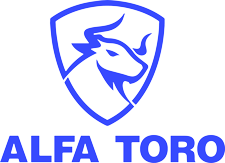Why the ORB Strategy Fails – And What to Do Instead
Let’s talk about something important—why the ORB strategy just doesn’t work that well, and what I use instead that gives me way better results.
What Is the ORB Strategy?
The ORB (Opening Range Breakout) strategy is when you wait for price to break above or below the first 15-minute candle of the trading day.
Sounds simple, right?

But here’s the problem:
- You’re often too late. By the time it breaks, the best entry is already gone.
- You don’t know where price is going. There’s no real target, just a hope that price keeps going your way.
That’s not a plan. That’s guessing.
A Smarter Way: Using Gextron
Instead of ORB, I use a tool called Gextron. It shows me key levels—major spots of support or resistance based on option premium data, not just price candles.
You don’t need to overthink it.
Look for the tall bars on the Gamma Exposure chart.
- Tall positive bars = Strong resistance
- Tall negative bars = Strong support
It’s seriously that easy. If you can spot tall bars, you’re already ahead of most traders.
Example: TSLA trade
Let’s use Tesla as an example.

When I looked at the Gextron chart, I saw:
- 350 was the tallest resistance bar (max reward)
- 340 and 345 were smaller, but still important levels
We call these AOIs—Areas of Interest. We marked them on our chart and waited.
When price stayed above 340, we went long (bought calls).

If you have gotten the following week expiration, you could have made over 40% on that trade.
If you had waited for the ORB breakout, you might’ve only made 20–25%.
Why? Because ORB gives you a late entry and no clue where to exit.
Trading Made Simple: Key Level to Key Level
All we’re doing is trading from one key level to the next:
- From 340 to 350
- From 350 to 355
- From 355 to 360
And so on…
That’s it.
We don’t guess. We plan.
We let the chart show us where price is likely to go.
But Wait… There’s More: The Expected Move
Gextron also shows us Expected Move (EM).
This tells us how far a stock like Tesla is likely to move based on implied volatility.
Let’s say Tesla is at 348, and the expected move is $15.80.
That means Tesla could hit:
- 363.80 to the upside
- 332.20 to the downside
We mark these levels on the chart as “WM” (Weekly Move).
If we’re bullish, we aim for 363+ as a possible target for our runners.
Again—this is forward-looking, not based on past candles.
Final Thoughts
The ORB strategy might sound easy, but it’s:
- Late
- Unclear
- Not forward-looking
Gextron gives us:
- Better entries
- Clear price targets
- Forward-looking data based on option premiums
Key level to key level. That’s the game.
That’s how we sniped 40% and 20% trades on Tesla—twice in one day.
If you want to level up your trading, ditch the ORB and start using tools that actually give you an edge.
